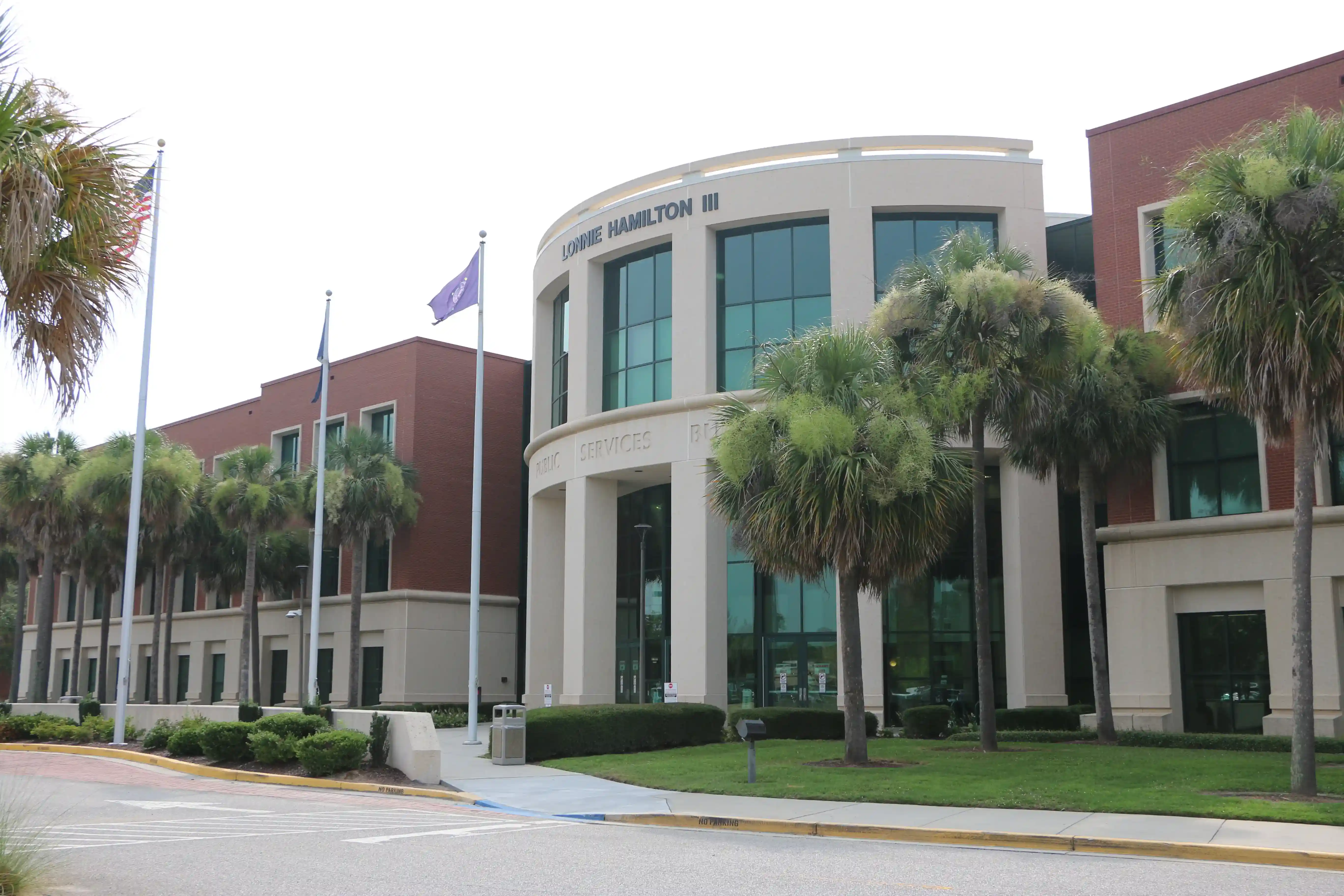Responsibilities

The Delinquent Tax Division investigates and collects delinquent real and personal property taxes, penalties and levy costs; finds and notifies taxpayers of taxes owed; and maintains an accurate, up-to-date account of monies collected. Once a property tax bill is deemed delinquent (after March 15 of each year), the debt goes into execution and the County Treasurer sends the bill to the Delinquent Tax Division for collection. The Delinquent Tax Division also works closely with the Register of Deeds, Auditor and Revenue Collections.
- Send out notices for past-due taxes on personal and real property
- Seize property for non-payment, in accordance with S.C. Code of Laws, Title 12
- Plan, conduct and manage tax sales
- Perform post-sale work, such as title and mortgage research and deed creation
Contact
Lonnie Hamilton, III, Public Services Building
Phone: (843) 202-6570
Fax: (843) 202-6066
Delinquent Vehicle: (843) 958-4200 (option 2)
Office Hours: M – F | 8:30AM – 5PM
Frequently Asked Questions (FAQs)
Answer: The Delinquent Tax Division creates an overage when the bid amount exceeds the delinquent taxes, penalties, levy costs and current year's taxes.
If the property is conveyed to the bidder, the defaulting taxpayer is entitled to the overage. If the delinquent taxpayer redeems the property, the bid amount plus interest is returned to the bidder.
Answer: Properties not sold at the Delinquent Tax Sale will be placed in a sealed-bid, silent auction typically held about a month following the initial auction.
A list and instructions will be available online when the sale is open. If no information is available online, then the sale has closed and no properties are available for bid.
Answer: Attend the tax sales once a year, usually in the fall or winter.
The dates of delinquent tax sales are advertised in local newspapers before each sale.
Answer: No.
However, if you owe several years' taxes and your property has not already been sold at tax sale, you may pay one year at a time. You must pay the oldest year first.
Answer: When real property or mobile homes are sold at a delinquent tax sale, the defaulting taxpayer has one year from the date of the sale to redeem the property.
In order to redeem property before it is conveyed to a new owner, the defaulting taxpayer must pay the redemption amount. This consists of the taxes, interest on the bid amount (the amount for which the property was sold at the tax sale) plus penalties and levy costs.
Answer: Cash, personal checks, business checks, certified checks, money orders and credit cards are acceptable during most of the year.
However, during specified periods, cash, certified checks or money orders are required. (Please call the Delinquent Tax Division for details.)
Answer: No.
Anyone can pay a tax bill. However, payment of someone else's tax bill does not give one claim to the property.
Charleston County
ChasCountyGov
ChasCountyGov
Charleston County Government
CharlestonCountyGovernment
CharlestonCountyGovernment
CharlestonCountyGov
ChasCountyGov